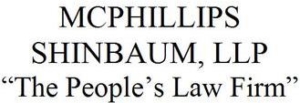Alabama Town Weighs Alternative Sentencing Option
One Alabama community recently unveiled a very controversial alternative sentencing plan ― nonviolent offenders may choose to go to church instead of jail.
Bay Minette, a town of 8,200 residents about 30 miles northeast of Mobile, offered first-time, non-violent offenders facing municipal court charges an alternative of attending church services once a week for a year to avoid jail time, fines and other traditional criminal penalties ― a program called Restore Our Community (ROC). The town abandoned the plan after pressure from a number of advocacy groups. The ACLU applauded Bay Minette’s attempts to employ alternative sentencing arrangements, but decried the ROC initiative as “coercive” and a clear violation of the United States Constitution’s Establishment Clause. The ROC is currently not available, according to Bay Minette’s website.
Conventional alternative sentencing
Many jurisdictions often sentence criminals to nontraditional punishments. An Alabama criminal defense attorney can give you more information about the programs available to you in your county. Some common alternative sentencing models include:
- Community service. An offender may work for charitable non-profits ― such as the Red Cross or a homeless shelter – or perform clean-up duties in area parks and other public places.
- Weekend jail time. Jail inmates serve their entire sentence on weekends, by checking into jail on Friday night and being released on Sunday night.
- Work release. Inmates continue to work at their regular jobs on weekdays, and spend weeknights and weekends serving their sentences.
- House arrest. The convicted offenders wear an electronic monitoring device and, apart from a few special circumstances, are not allowed to leave their homes for the duration of their sentences.
Unconventional alternative sentencing
There are also some unconventional alternative sentencing arrangements, aside from Bay Minette’s so-called “Jesus or Jail” plan. For example, a defendant found guilty of playing a car stereo too loudly may be sentenced to listen to classical music. Such measures often meet opposition from advocacy groups based on the idea that these schemes violate the “unusual” portion of the Eight Amendment’s prohibition of cruel and unusual punishment.
To speak with an attorney who looks for creative ways to help you deal with a criminal conviction, contact the experienced lawyers at McPhillips Shinbaum for your free consultation.











